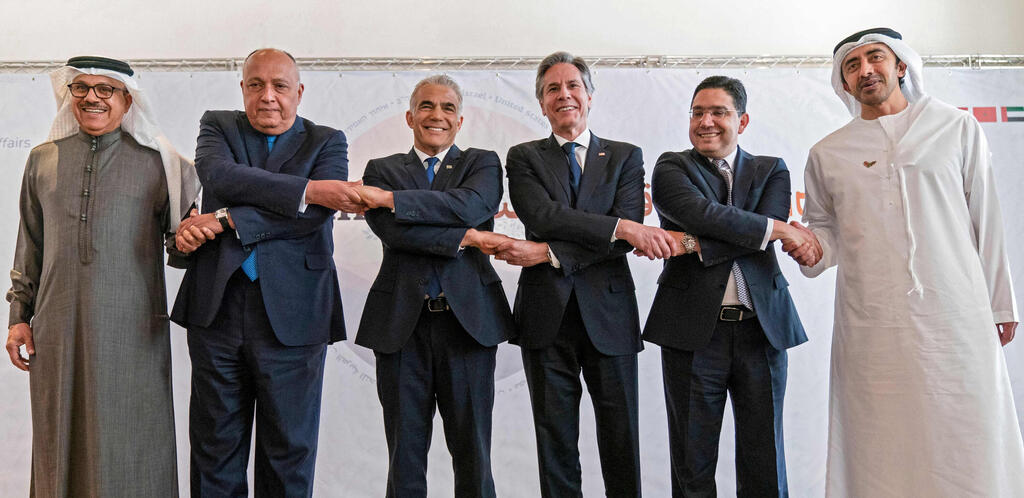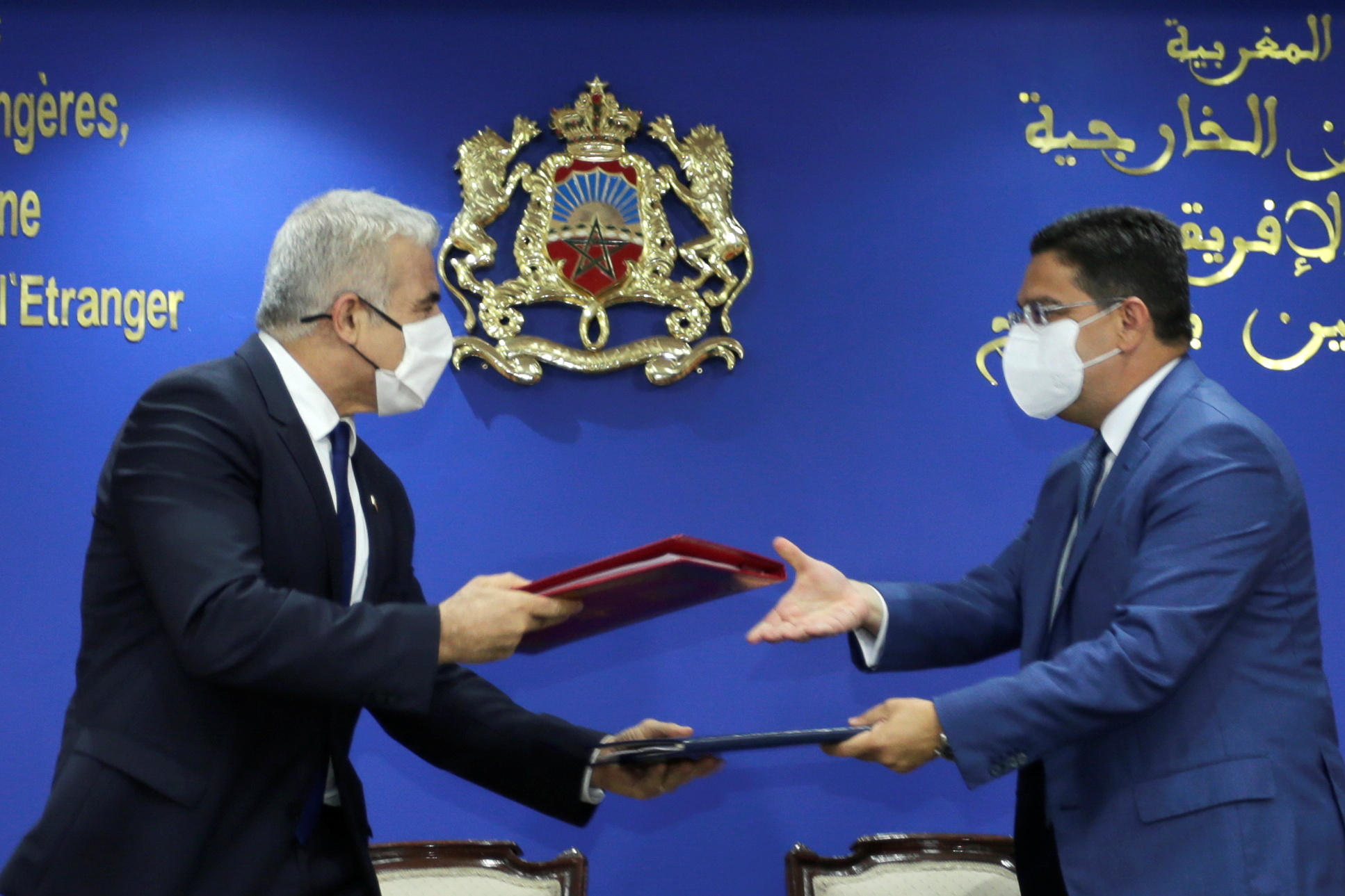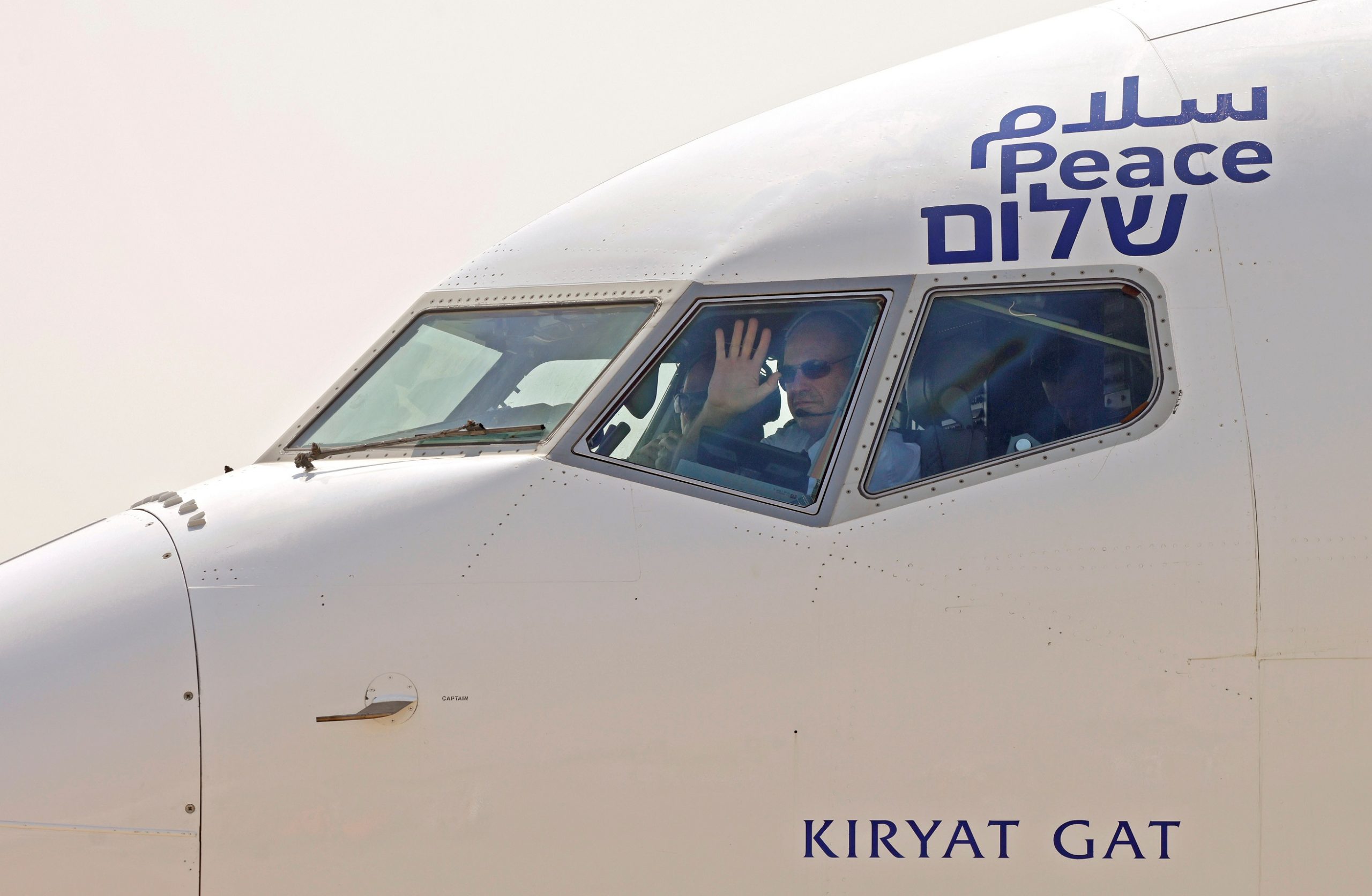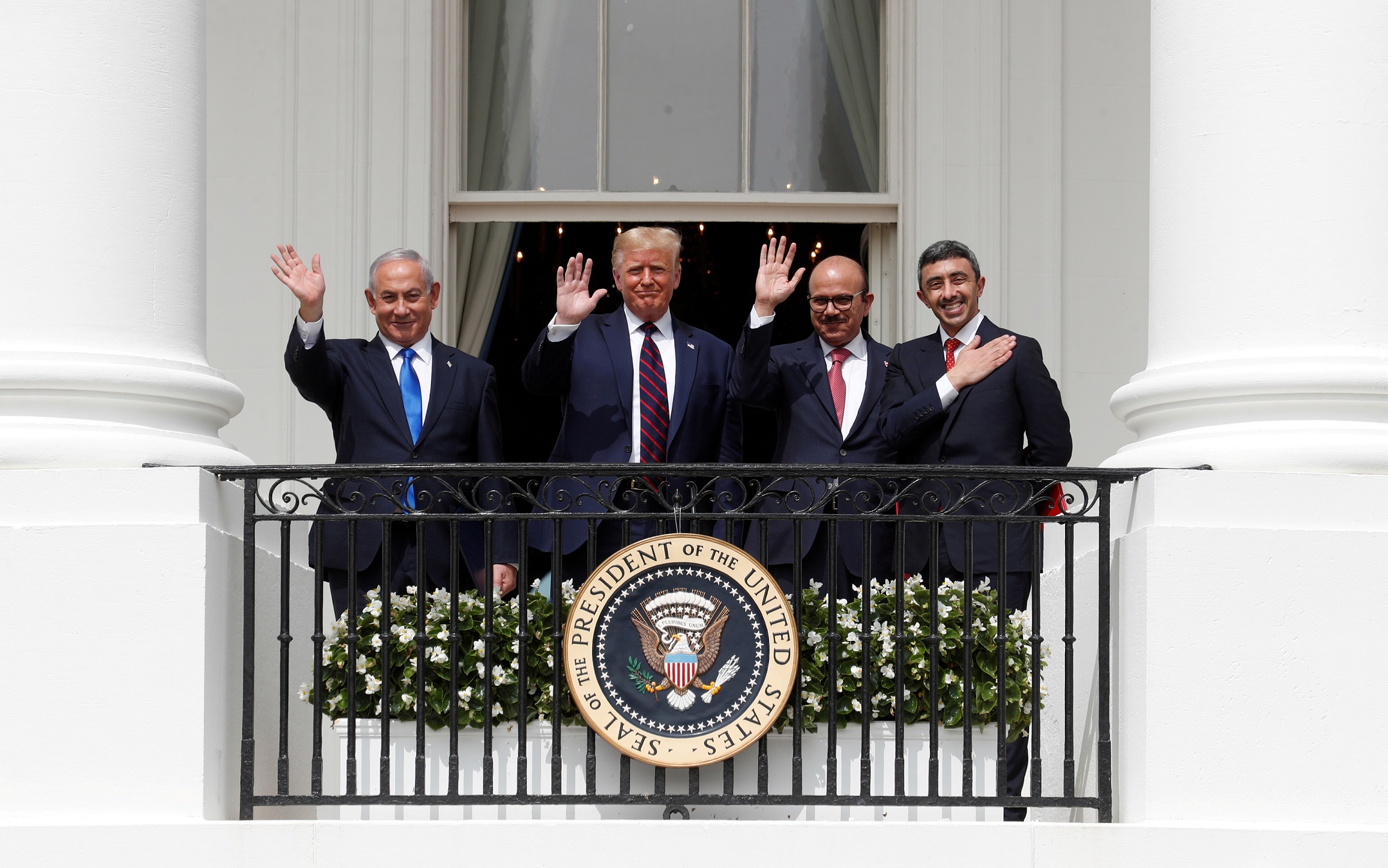Publications
INSS Insight No. 1632, August 15, 2022
August 13, 2022 marked the second anniversary of the historic announcement of the Abraham Accords, following many weeks of rushed, clandestine diplomatic efforts. Within four months of the announcement, Israel signed diplomatic agreements with four countries. Progress to date has been systematic and rapid, and the overall picture is optimistic and promising. Nevertheless there are many remaining challenges, and there is still a long way to go before the potential of the Accords is fully realized. Civilian spheres with great actual potential include a land trade route between Israel and the Gulf states; regional projects; energy, food, and water; digital health and medicine; and education and culture. The Abraham Accords framework should be reinforced and expanded. In particular, efforts should be directed to consolidate the existing agreements in order to prevent negative momentum and the withdrawal of countries from the Accords.
August 13, 2022 marked the second anniversary of the historic announcement of the Abraham Accords, following many weeks of rushed, clandestine diplomatic efforts. Then-US President Donald Trump, United Arab Emirates (UAE) Crown Prince Mohammed bin Zayed, and then-Israeli Prime Minister Benjamin Netanyahu held a widely covered telephone conversation that culminated in a joint announcement of a decision to launch political relations between Israel and UAE and the beginning of a new road toward normalization between the peoples and nations. This established an important milestone in the most significant political process in the region in the past 25 years – the Abraham Accords. These accords, named for the common forefather of three religions, signaled the beginning of a new era. What followed was like a dream: within four months after the announcement, Israel signed diplomatic agreements with four countries. It was a refreshing and promising beacon of light shining through the heavy and dismal cloud of the COVID-19 pandemic – a ray of hope, optimism, and renaissance.
In the two years since then, Israel has opened diplomatic representative offices in each of the Abraham Accords countries: UAE, Bahrain, Sudan, and Morocco. Direct air routes and flights operate between Israel and Abu Dhabi, Dubai, Manama, Casablanca, and Marrakesh. Ministers and leading figures from all the countries have conducted reciprocal official visits and have signed cooperation agreements in a wide range of areas. In addition, businesspeople have mapped opportunities and formulated joint models, and dozens of civilian initiatives have also been launched. Cooperative economic ventures and commercial agreements have generated a dramatic increase in trade figures with the Abraham Accords countries, including direct investments between countries. The demand for Hebrew language studies has increased. UAE and Moroccan students have registered for courses and advanced academic programs in academic institutions and research institutes in Israel. The visa exemption agreement between Israel and UAE and the electronic visa track for Israelis seeking to visit Bahrain and Morocco have made flights by Israelis to these destinations much easier than flights to New York or Washington.

Moreover, the security ties between Israel and the Abraham Accords countries have been tightened and expanded. The visits by the IDF Chief of Staff and the joint maneuvers were conducted in the public spotlight and covered extensively in the local media. The agreements on partnership in defense against drones and missiles under American leadership inspire great optimism in countries in the region, in view of the anxiety concerning these threats. The defense industries in Israel have stepped up their ties and agreements in this context.
The Abraham Accords have weathered and overcome the political and security obstacles generated in the current reality. The leaders of the Arab countries who signed agreements with Israel have adhered to the containment policy that they adopted regarding the clashes in the Gaza Strip – Operation Guardian of the Walls in May 2021 and recently during Operation Breaking Dawn – and in the West Bank, despite efforts by Islamic groups to incite popular unrest over the Temple Mount.
President Biden's administration endorsed the Abraham Accords, although they were created under different auspices. To a certain extent, the Accords gave the administration a platform and a channel for allaying criticism of its policy on the issue of Iran and in the Middle East. President Biden helped institutionalize the Negev Forum, which convened for the first time in Sde Boker in March 2022 with the participation of the foreign ministers of the Abraham Accords countries and is scheduled to convene annually. The administration also advanced opening Saudi skies to Israeli flights as a gesture and signal toward continuation of the positive trend. The change in the US stance toward Mohammed bin Salman and the return of Qatar and Turkey to the pragmatic camp of Saudi Arabia, UAE, Bahrain, and Egypt opens new opportunities in the region.

Progress is systematic and rapid, and the overall picture is optimistic and promising. At the same time, there is still a long way to go before the potential of the Accords is fully realized.
There is much attainable potential in the following civilian spheres:
- Opening a land trade route through (or from) Israel to the Gulf states: The dozens of daily direct flights boost trade and facilitate delivery of goods between Israel and the Abraham Accords countries, but to a limited extent. Air shipping is expensive and unsuitable for products that are too large or heavy. The boycott laws formerly enforced against Israel UAE and Bahrain prevented the delivery of shipments via Israel. For years, European countries were forced to send their land exports to the Gulf via Turkey, Lebanon, or the Suez Canal. Now that following the Abraham Accords the boycott laws have been repealed, the way has been opened for an efficient and cheaper land trade route – from Israel to the Gulf. It will yield economic benefits both to countries in the region and European countries, which can also utilize it for importing and exporting vehicles. The demand for traffic in land-based trade, which is already rising, will mandate the expansion of infrastructure at the Jordan River/Sheikh Hussein Border Crossing. This is an essential step for furthering trade between the Abraham Accords countries and is also likely to contribute to the global economy.
- Promotion of regional projects: Regional projects with the participation of Egypt, Israel, and the Gulf states can solve some of the fundamental problems of the Gaza Strip in infrastructure and economics, without increasing the security risks for Israel.

- Energy, food, and water: The war in Ukraine forces the Western world, first and foremost the European countries, to find additional sources of energy and food. The Gulf states, especially following the rapprochement between the United States and Saudi Arabia, and the "acceptance" of Mohammed bin Salman, can be part of the solution for the oil shortage. For its part, Israel is a potential exporter of natural gas. The gas supply and shipping agreements can ensure solutions for Europe in these critical areas.
- The food crisis: Israel's know-how and experience as a leader in high-protein meat alternatives has major potential. Similarly, alternative sources of wheat can be created in African countries, among them Sudan, with technological and agricultural know-how from Israel, UAE, and Morocco.
- Water recycling and desalination: As a world leader in both water recycling and desalination and atmospheric water generator (AWG) technology, Israel can provide quick practical solutions to the water shortage problem and the challenges of managing the water economies in the Abraham Accords countries, as well as in European and African countries.
- Digital health and medicine: The COVID-19 pandemic has highlighted the importance of cooperation between the world's countries in lifesaving ventures. Israel has proven itself as a power in both public health and medical technology. The public health challenges, including the risk of future pandemics, and the opportunities provided in the AI realm, encourage cooperative ventures and extended ties on all levels between government health systems, hospitals, and clinics, and between research institutes and bio-tech companies, which will be able to promote projects and initiatives for saving lives, improving the quality of life, and preventing global health crises.
- Education and culture: Educational and cultural initiatives must be deepened and expanded, in order to strengthen fundamental concepts that support peace and weaken separatist views and extremist Islamic ideas. It is important to teach values of tolerance, freedom of religion, and coexistence in all spheres: art, sports, cinema, and more. This is the basis for peace between individuals and peoples, not just between countries and governments.

- Interpersonal relations: Governments come and go, but their peoples remain. It is therefore essential to build popular support for normalization with Israel among the population in each of the Abraham Accords countries, including the establishment of a basis of religious and popular legitimacy for relations with the Jewish state. Morocco is the natural country to begin this (or more precisely, to continue it), given the King's traditional attitude toward Jewish culture and the Jewish community. It is also important that Muslim Arabs from the Abraham Accords countries feel welcome in Israel and sense that they can benefit from the free society and sound interfaith relations.
Strengthening and expanding the peace circle: It is important to invite Sudan and Chad (whose place among the Abraham Accords countries has been unjustly neglected) to take part in every forum and work group in the Abraham Accords framework. It is important that these two countries also enjoy the fruits of peace and their decision to normalize their relations with Israel; otherwise, negative momentum may emerge. The same is true of Kosovo, a European country with a Muslim majority, which has formed official ties with Israel, and has opened an embassy in Jerusalem. Substantial measures should be taken to foster relations and ensure that countries do not withdraw from the agreements. When every country in the Abraham Accords framework sees a return and profit on its investment, this will enable the agreements to take stronger root, and will encourage additional countries to climb aboard the peace train.
Making peace is not easy. Signing the agreements is ceremonial, uplifting, and full of joy and optimism. As with marriage, however, the ceremony is only the beginning. The main task is in the succeeding days and years. Building a life together means that it cannot be taken for granted. Investment, initiative, creativity, and constant renewal are needed. Every success strengthens trust and partnership, and justifies the choice made. The shared experiences add feeling and infuse new energy into the process.
Despite the fluctuations and political struggles, the Abraham Accords remain a matter of consensus, not only because of their advantages in security, economics, and technology, but also because above all, they highlight the vision and express the hope of true peace and a better future.



